Professional photographer Le Vuong (1918-2021) is known for his wonderful Hanoi-themed photographs. As a resident of the city for more than a century, he was a witness to the ups and downs of the capital city and its people.
The capital seems to be an endless source of inspiration for his work. Vuong's collection of thousands of images about Hanoi is invaluable material and also a meaningful gift he has given to the homeland and future generations of Hanoians.
In 2016, the professional photographer was honored to receive the Grand Award of the Bui Xuan Phai-For the Love of Hanoi. The late talented photographer was also recognized as the city's 10 exemplary citizens in 2017.
The late artist, who passed away aged 103, once said that he was like a worker bee, diligently seeking the nectar, which is the beauty of Hanoi. He once told the local press, "Looking at the old black and white photos, I found Hanoi very beautiful in the past, from street vendors to women picking up bottles, both wearing the traditional long dress. But now, even the sound is different from then."
Cultural researcher Huu Ngoc commented, "Le Vuong's works have classical beauty, straightforward, very close to painting in composition, lines and colors."
His photographs are close to Vietnamese painting, which has an impressionist influence, especially in terms of color.
The black-and-white photos below are a testament to the beauty of old Hanoi through the lens of photographer Le Vuong:
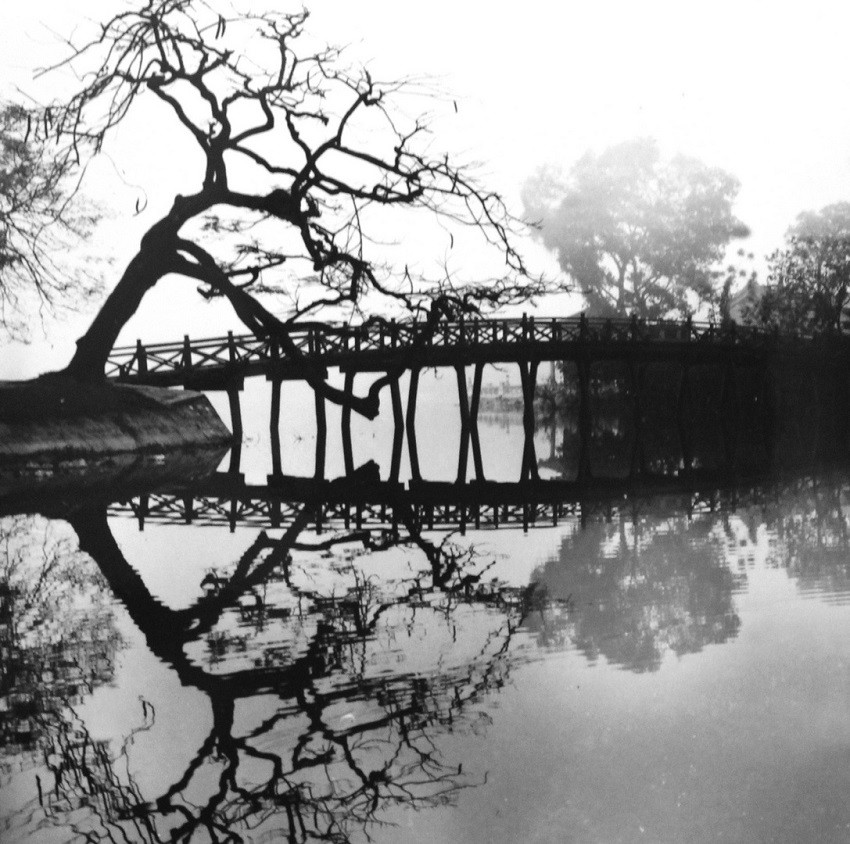 |
|
Le Vuong bought his first camera when he was 18 years old. The precious camera was worth a whole piece of land in Hanoi, but he bought it anyway in order to capture the beautiful scenery during his trip all over Indochina. After this trip, Le Vuong developed a passion and attachment to the art of photography. The photo titled "The Huc Bridge" |
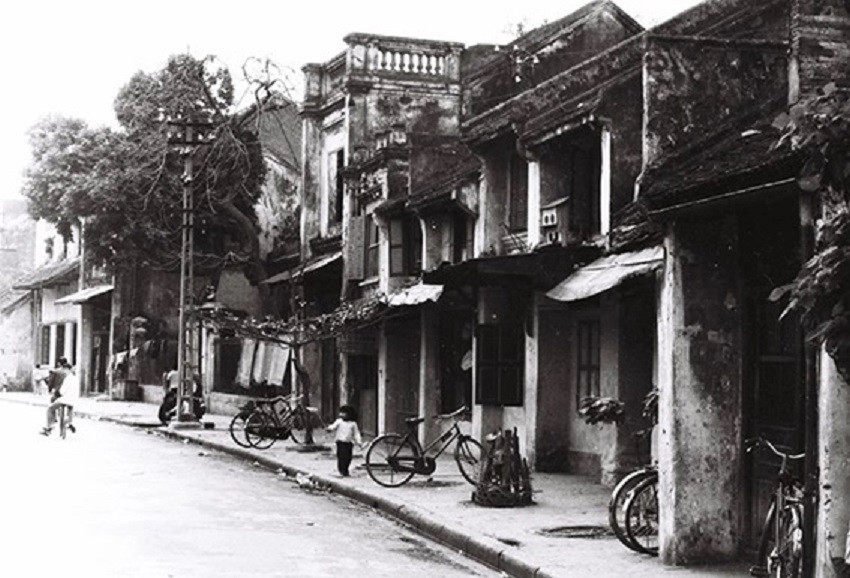 |
| Since the 1930s, Vuong had been on the move with his camera to all corners of Hanoi, capturing the pace of life, the people, and the landscape of the capital city. His photos always have their own beauty and precious artistic value. |
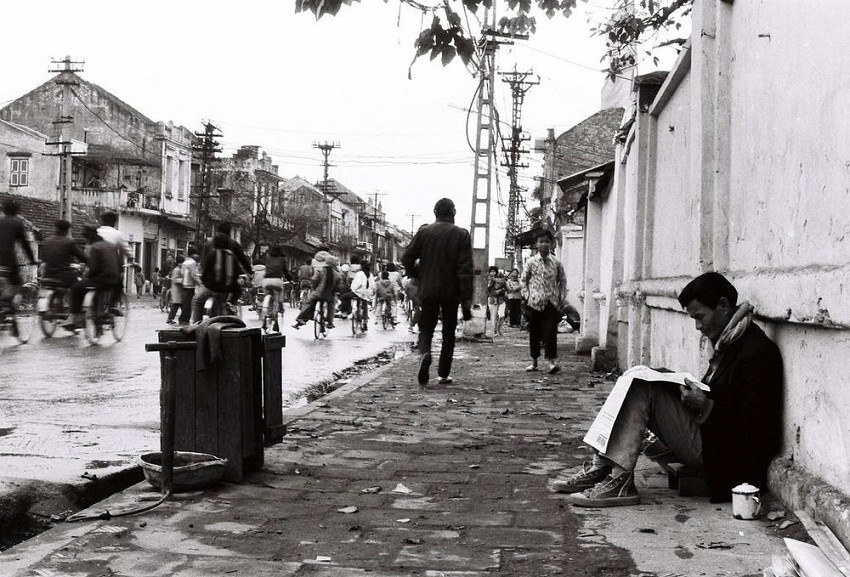 |
|
Behind the old things of Hanoi, like tile roofs, small houses, narrow alleys, an old train, and some people walking on the street... the capital was amazingly beautiful for the photographer to discover and capture. |
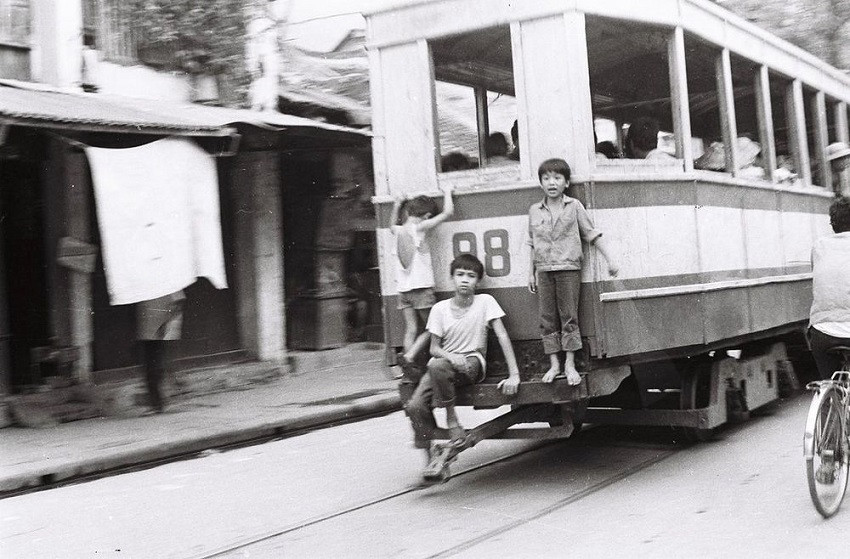 |
|
Photo of a tram crossing the street. This was an important means of transportation in Hanoi in the old days. In the early 1990s, the tram stopped working, but the sound of the train's jingle is still remembered by many Hanoians. |
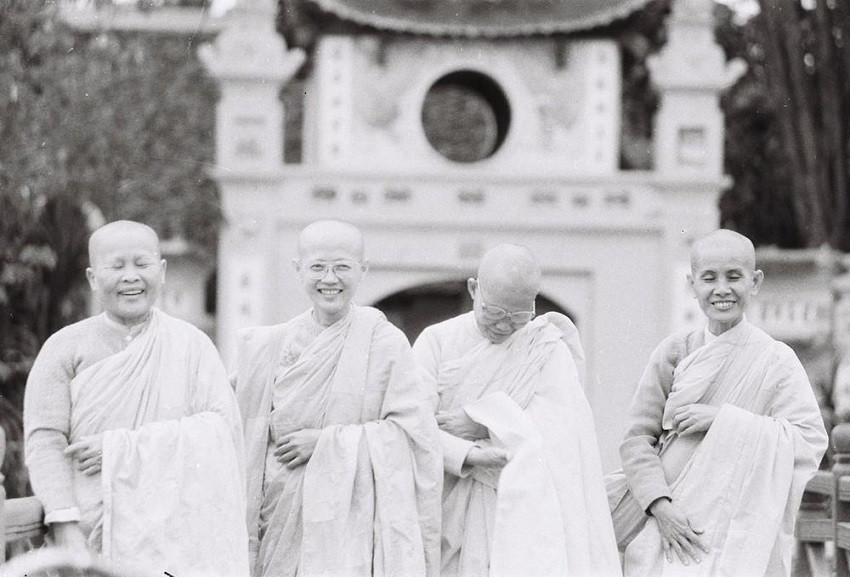 |
| These four nuns greeted the talented photographer with their big, friendly smiles. |
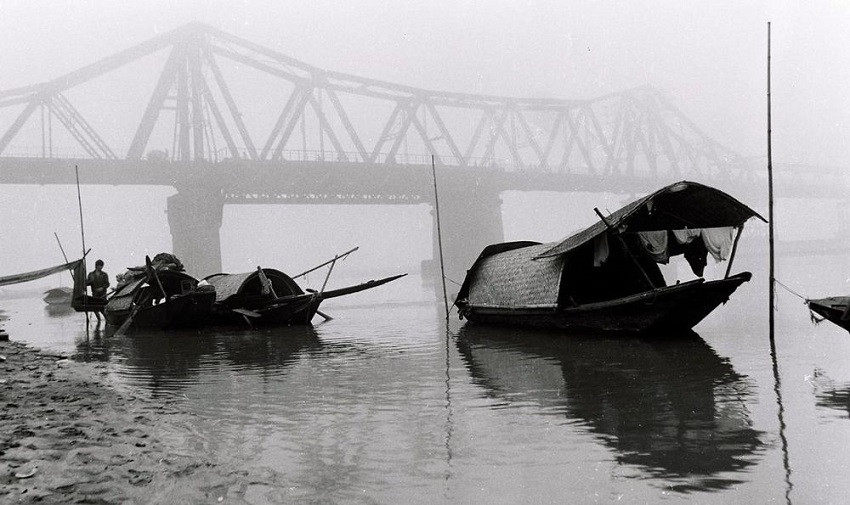 |
| Hanoi's iconic Long Bien Bridge in the old days |
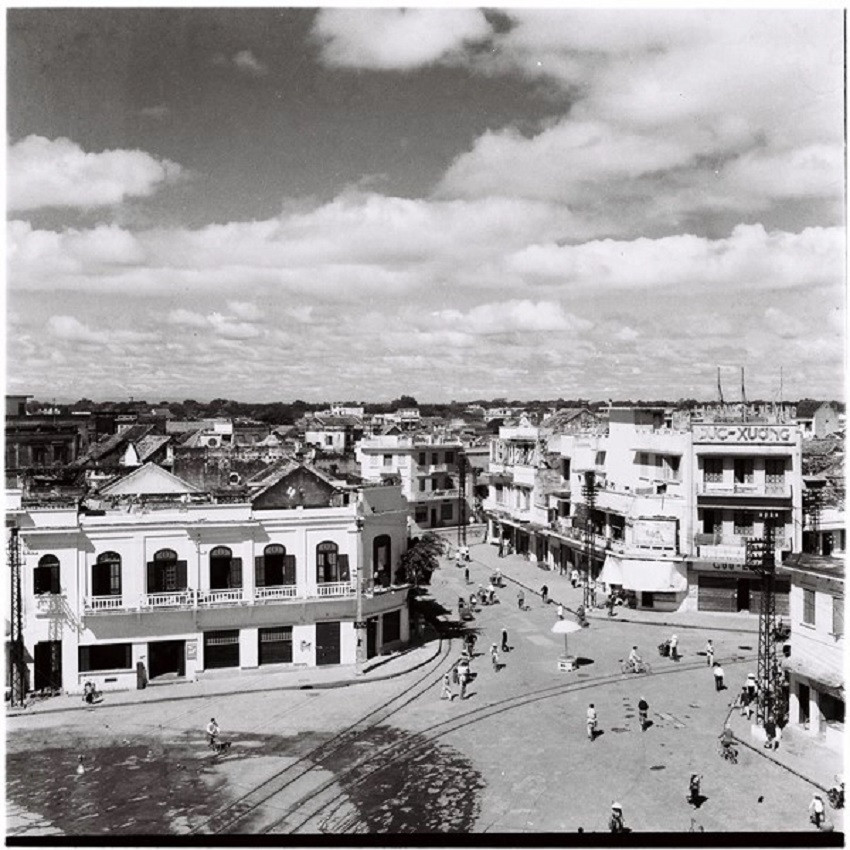 |
| The peaceful scenery of Hanoi in 1980s |
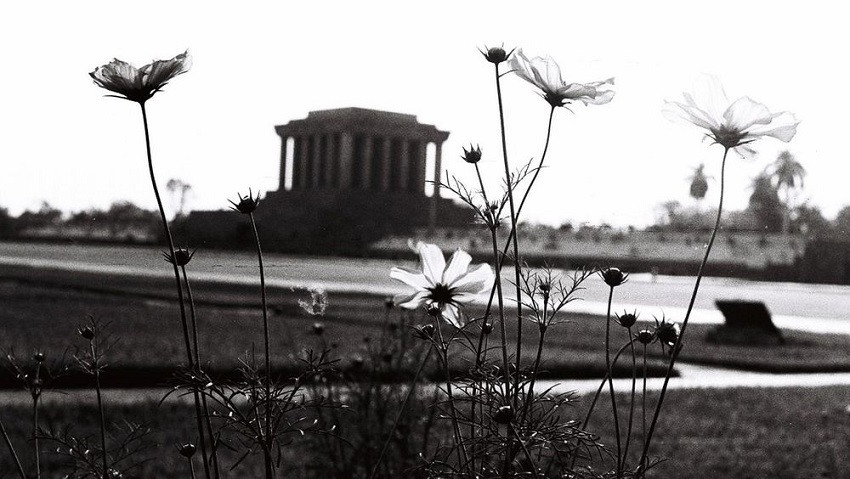 |
| These simple but beautiful flowers have been blooming in front of the Mausoleum of Ho Chi Minh at some time in the past. |
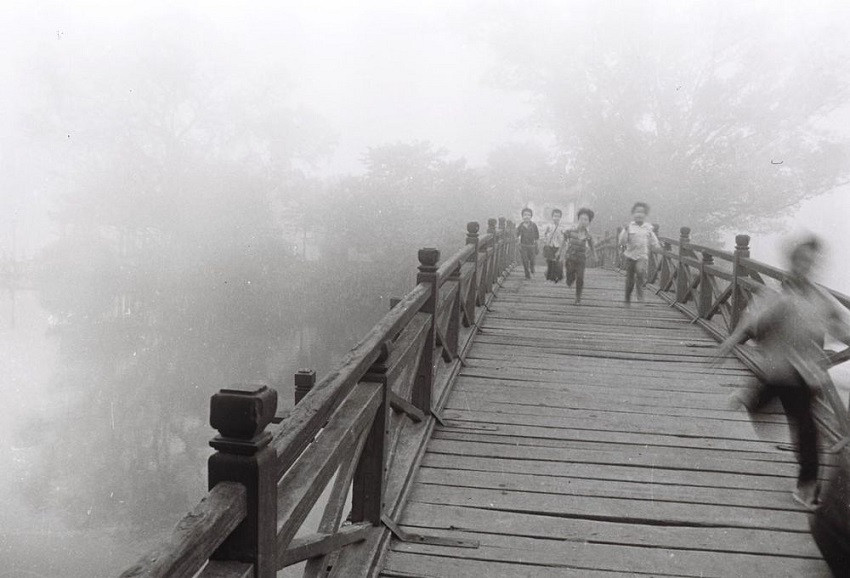 |
| These children were playing on The Huc Bridge at Sword Lake. The red-painted wooden bridge has retained its charm over time. |
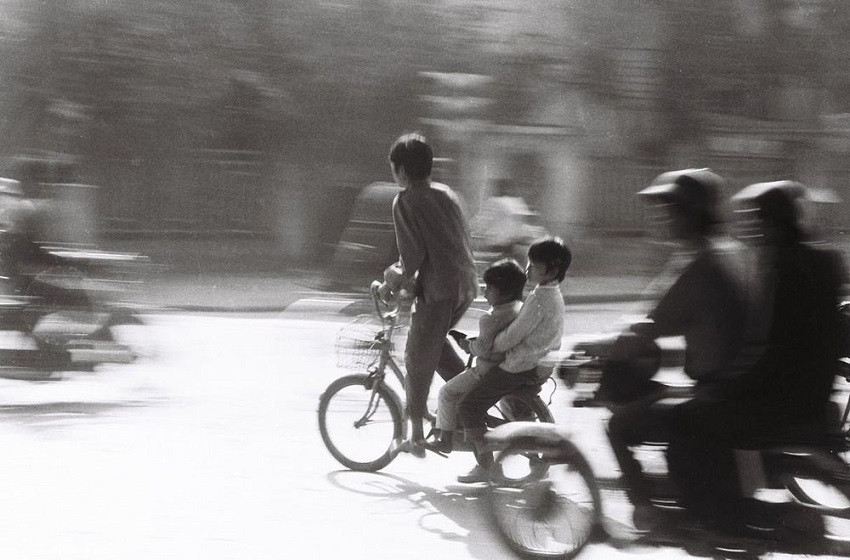 |
| Vuong also portrayed Hanoi beyond the common perception. Hanoi in his works is the suburban villages and historical vestiges that mark the ups and downs of the capital. His photographic works not only have documentary value on architecture and human life but also evoke many geometric lines and inspire creativity in fine arts. |
Source: Hanoitimes